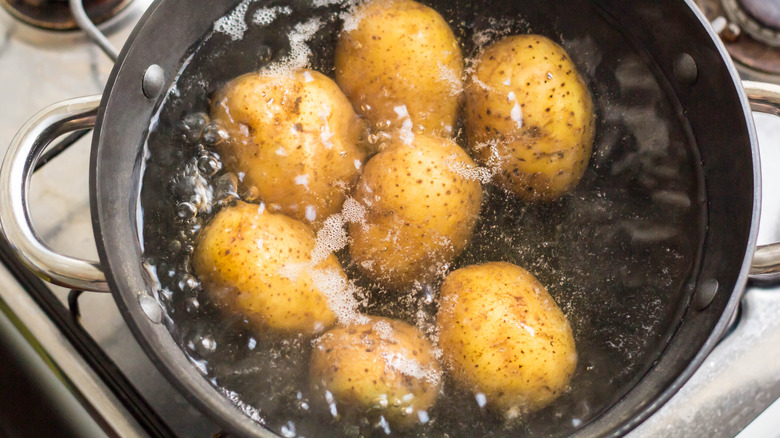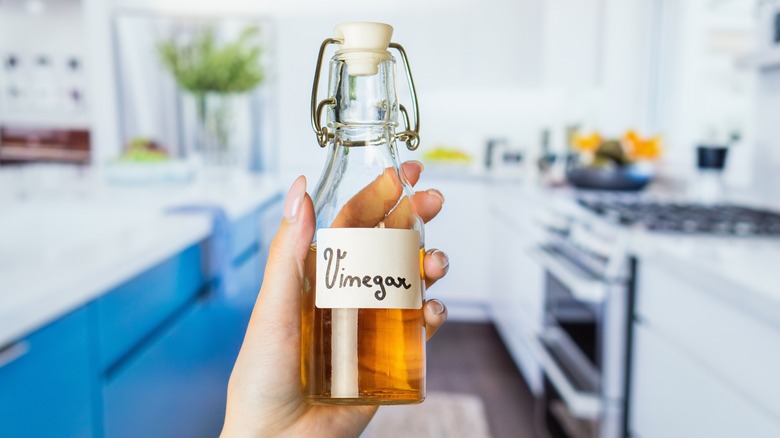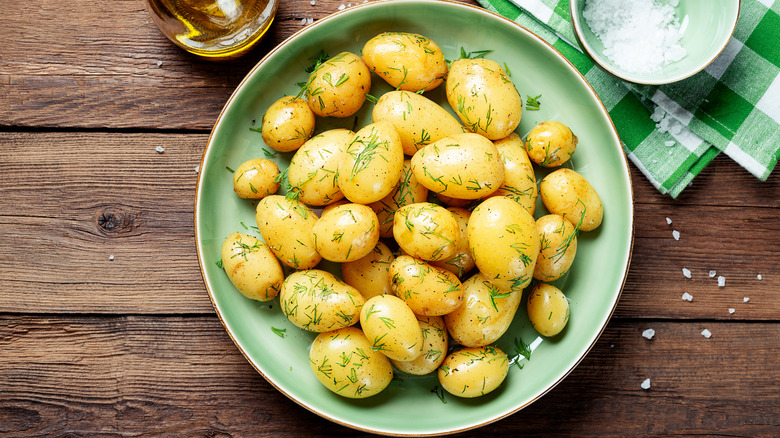Why You Should Use Vinegar When Boiling Potatoes
Potatoes are a versatile ingredient in cooking. They can be baked, mashed, fried, boiled, or added to roasts, soups, and stews. However, it's important to know which potato to use in a recipe that will give it the best texture and its own distinct flavor, per Spruce Eats. And if you thought all potatoes were the same, settle in to learn something new.
Most potatoes can be put into two categories — waxy or starchy. Higher starch content can break down or become creamier and they're best used when making mashed or baked potatoes. Waxy varieties are the types of potatoes that will hold up better to boiling in water, like when you're making potato salad. Speaking of the popular side dish, nothing is worse than biting into potato salad and getting a mouthful of mushiness. If this is something you've struggled with, before you give up on preparing potato salad from scratch, try adding a bit of vinegar to your pot of water.
A little vinegar goes a long way
Once you've determined that you're using the correct type of potato for boiling, adding vinegar to your pot of water will help them retain their shape. (As anyone who had ever ended up with falling apart chunks of potato instead of firm spuds can attest, there is almost nothing worse than a mushy potato when you're prepping your favorite potato salad recipe.)
According to blogger Home Cook World, all you need to do is boil the potatoes for 30 minutes, adding a bit of salt and a dash of vinegar to the boiling water at the 13-minute mark.
But why is vinegar helpful?
Any vinegar will do
According to Eating Expired, vinegar helps form a thin crust on the outer layer of potatoes. This crust is what's necessary to help them keep their shape and not become mushy or fall apart when boiling. The home cooks over at Reddit say this is because vinegar's acid prevents the pectin in potatoes from breaking down too quickly.
Also, it's important to note that there's no specific type of vinegar that's better to use over another. Eatwell 101 reports that using white, apple cider, or red wine varieties of vinegar all work well to keep potatoes intact, suggesting you rinse off the potatoes after boiling anyway to remove any lingering vinegar flavors (that is, if you're not looking to add too much of vinegar's signature tang to your dish).
The next time a recipe calls for boiled potatoes, try adding vinegar to your pot of water to keep your potatoes firm and ensure your recipe is a success.


